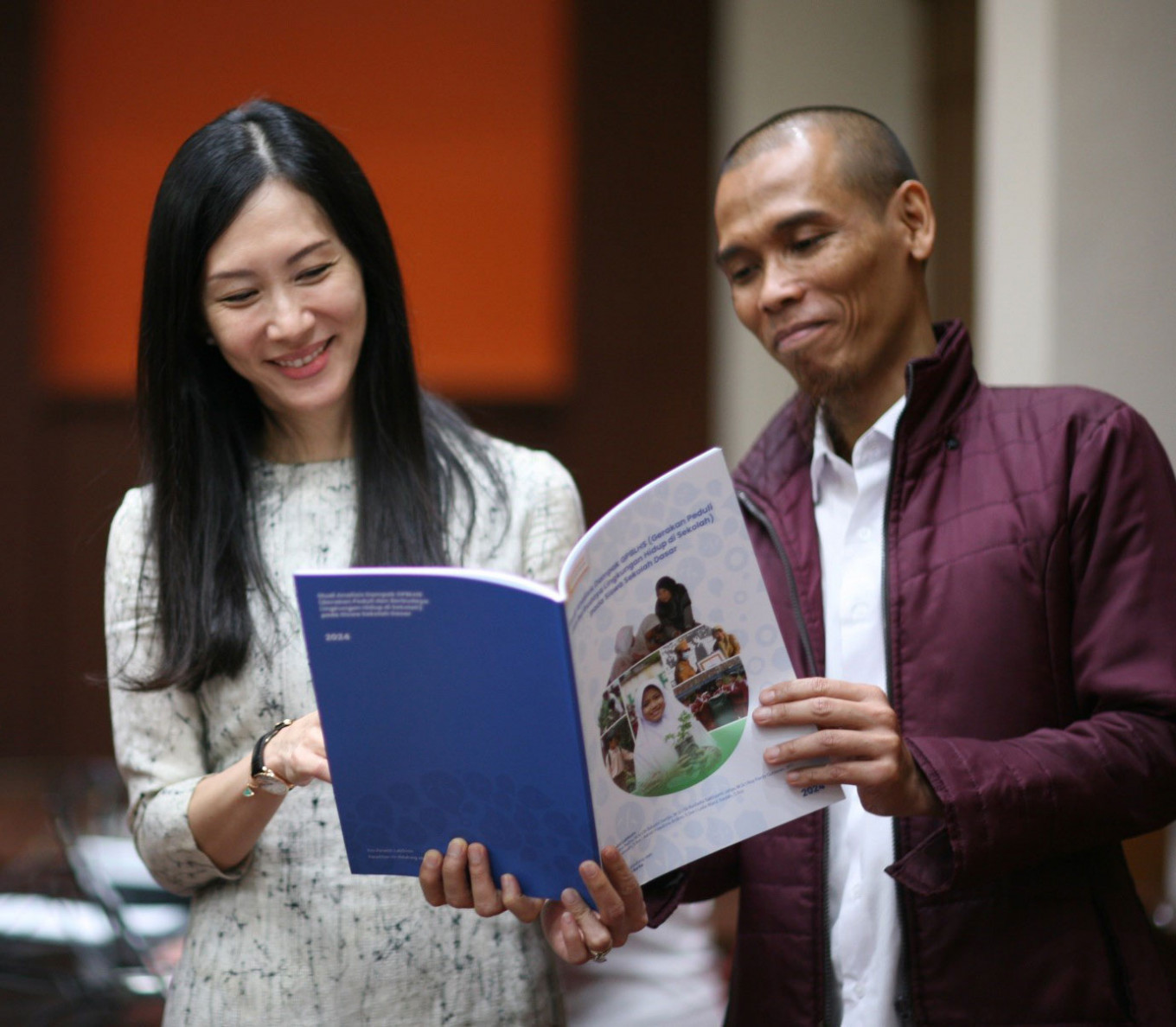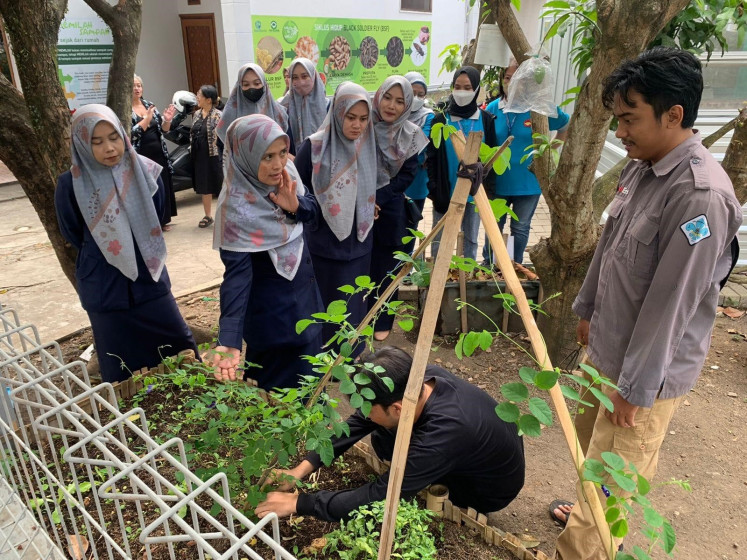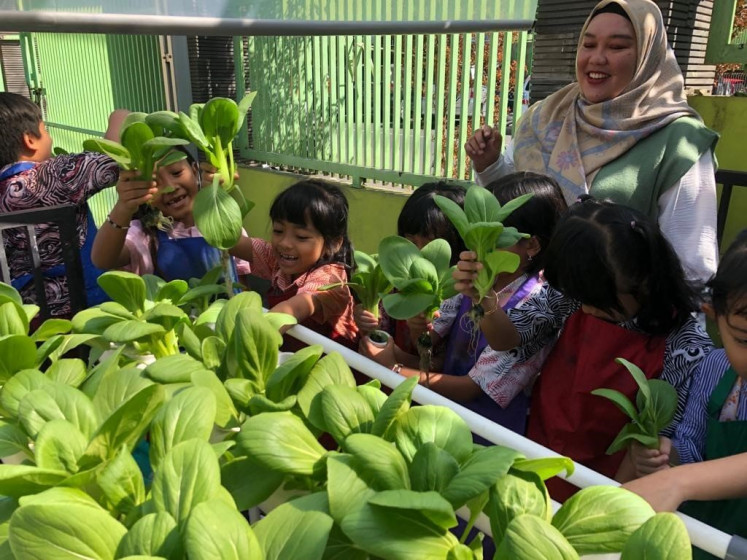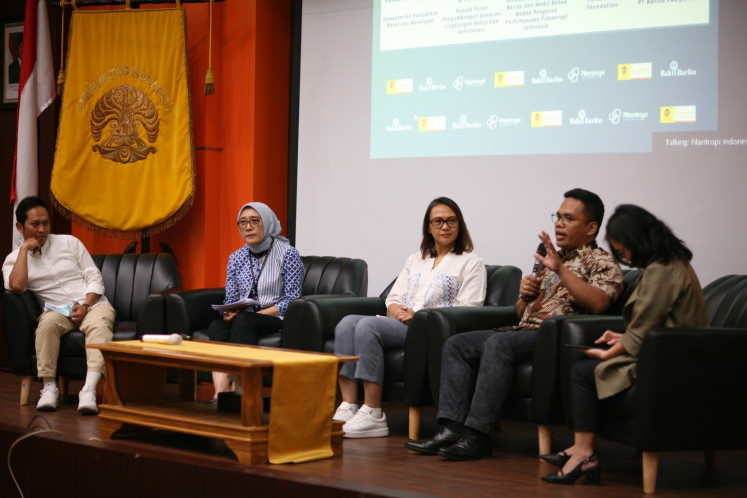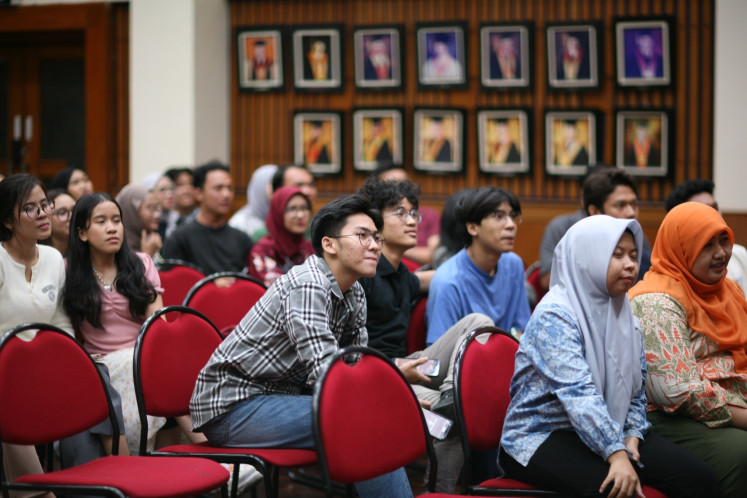Popular Reads
Top Results
Can't find what you're looking for?
View all search resultsPopular Reads
Top Results
Can't find what you're looking for?
View all search resultsUI, Bakti Barito Foundation Study Results: Raising the Bar in Environmental Education
Change text size
Gift Premium Articles
to Anyone
A
new study by the University of Indonesia, in collaboration with Bakti Barito Foundation, has revealed significant differences in the effectiveness of environmental education programs across three types of schools: national-level Adiwiyata schools, district-level Adiwiyata schools supported by Bakti Barito Foundation, and non-Adiwiyata schools with environmental initiatives.
The study evaluates the Environmental Care and Culture in Schools Movement (Gerakan Peduli dan Berbudaya Lingkungan Hidup di Sekolah or GPBLHS) initiative, led by the Environment and Forestry Ministry, which integrates environmental sustainability principles into school life through curricula, activities, and facilities.
Teachers from Bakti Barito-assisted Adiwiyata schools in Garut, West Java, receive hands-on training in sustainable gardening practicesComparative Insights
Students at a Bakti Barito-assisted Adiwyata school in Garut, West Java learn how to plant hydroponic vegetablesKey findings showed that Bakti Barito-supported schools outperformed their peers in several metrics, illustrating the value of targeted philanthropic support.
Recognized by the Environment and Forestry Ministry, national Adiwiyata schools displayed the highest baseline in environmental awareness and practices. These schools excel in waste management, tree planting, and water conservation, supported by established government frameworks.
In comparison, Bakti Barito-supported schools showed exceptional results, particularly in sanitation (94.8) and tree planting (91.2), compared with national Adiwiyata schools (92 and 89.8). These schools benefited from Bakti Barito’s Green Guardians program, which includes 12 hours of tailored assistance per school per week such as capacity building for teachers, hands-on activities like planting endemic species, waste management education, and disaster mitigation exercises.
“The tailored approach of Bakti Barito-supported schools empowers students to take ownership of environmental issues, making these programs not just educational but transformative,” said Dr. Sakti Wira Yudha, lead researcher of the study.
While non-Adiwiyata schools with environmental programs showed progress, limited resources and lack of structured support hindered sustained behavior change.
“The results highlight the need for additional funding and collaboration to unlock the potential of non-Adiwiyata schools,” noted Fifi Pangestu, Executive Director of Bakti Barito Foundation.
Beyond the Classroom
The study also highlighted the ripple effects of environmental education, with parents of Adiwiyata students reporting increased adoption of eco-friendly practices at home. “Students are becoming catalysts for change within their families and communities,” said Dian A. Purbasari, Director of Bakti Barito Foundation. Dian further emphasizes the importance of climate change adaptation and resilience among the next generation.
At Bakti Barito-supported schools, this impact was further amplified through the provision of endemic plants and community-focused activities. “By connecting students with their local environment, we aim to create a sense of ownership that extends beyond the school walls,” said Rinaldi Simatupang, Lead Program Coordinator of Green Guardians Program at Bakti Barito Foundation.
The Role of Philanthropy
The study’s findings underscore the critical role of philanthropic organizations in enhancing the reach and effectiveness of environmental education programs.
It noted that Bakti Barito’s Green Guardians program complements the Indonesian government’s Environmental Care and Culture in Schools Movement by supporting initiatives in waste management, water and energy conservation, and biodiversity conservation.
At the same time, the success of Bakti Barito-supported schools highlights the importance of partnerships between governments, private entities, and local communities.
“The Environmental Care and Culture in Schools Movement initiative led by the Ministry of Environment and Forestry has laid a strong foundation for environmental education, but broader stakeholder engagement is necessary to scale its impact,” Dian said during the study’s launch event at the University of Indonesia on Friday.
A Call to Action
University of Indonesia students listen intensely during the study’s launch event on FridayAs Indonesia faces mounting climate challenges, the study calls for prioritizing strategic investment in environmental education as a critical lever for achieving global sustainability goals.
In addition, it also recommended building stronger partnerships between public and private sectors, as well as replicating successful models in non-Adiwiyata schools to ensure nationwide impact.
“Education is our most powerful tool in combating climate change. By investing in young minds today, we are building a sustainable future for Indonesia,” said Fifi Pangestu, Executive Director of Bakti Barito Foundation.
The full study can be downloaded for free on the Bakti Barito Foundation’s website at https://baktibarito.com/newsroom/publication

